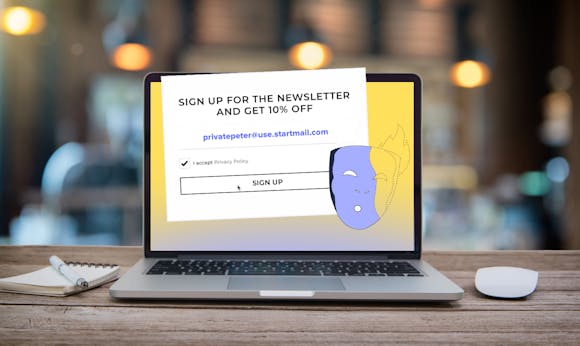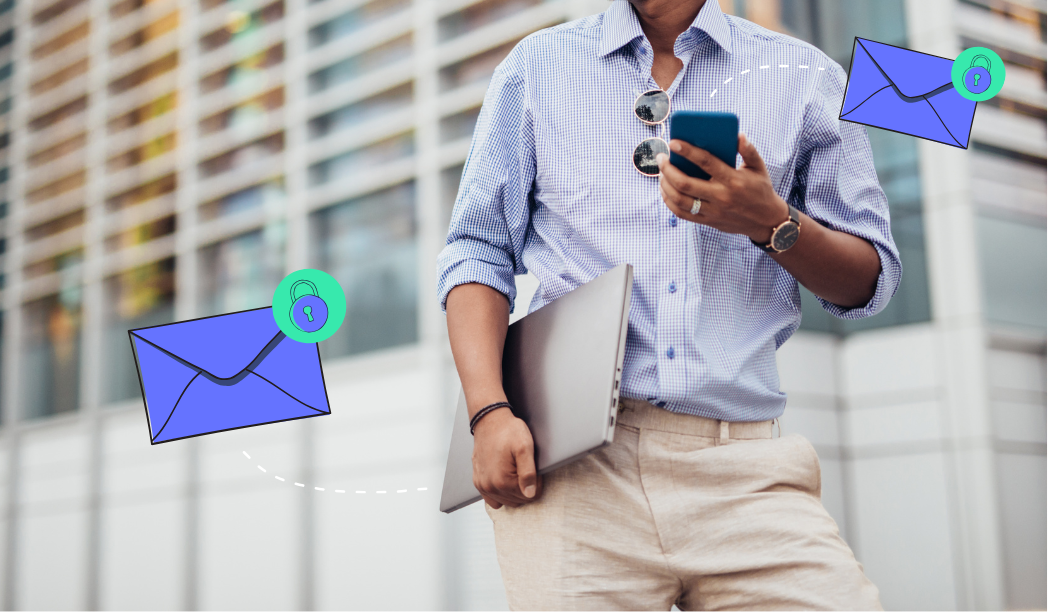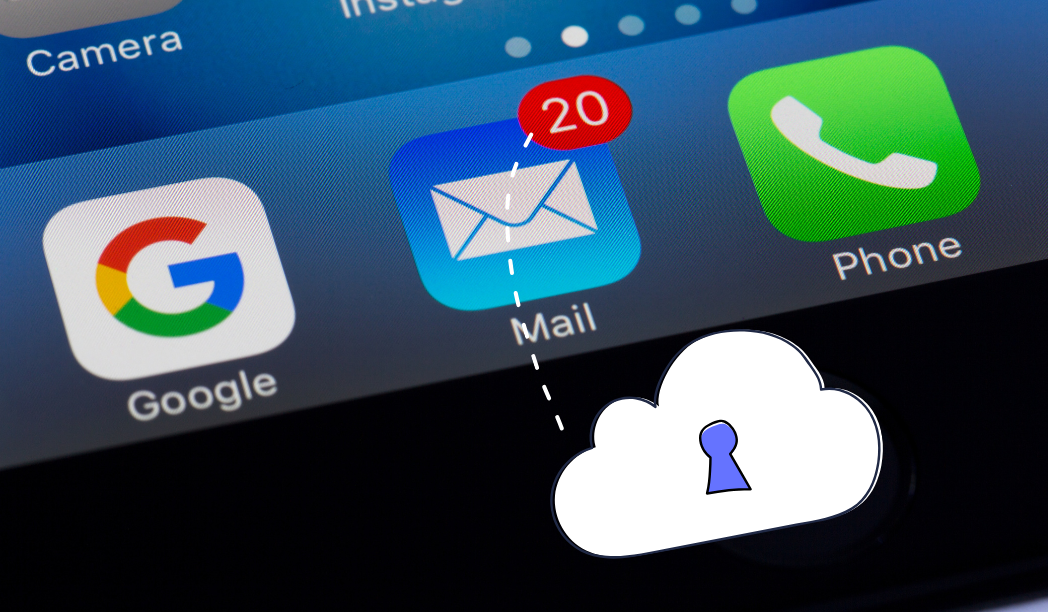
Private Email Account - Why it’s Becoming Essential in 2025
It’s 2025, and if you’re still using a free email service like Gmail or Yahoo to send everything from private messages to sensitive work files,we’ve got some unfortunate news for you. Free email services are free for a reason. We’ve all heard the saying, “nothing is ever truly free”. When it comes to email, you’re not paying with cash, you’re paying with your data.
But there’s good news! You don’t have to surrender your privacy just to send and receive messages! There’s a way out, and it starts with understanding and setting up a private email account. We’re going to break down what makes an email account private, how mainstream providers fall short, and the green flags to look for when switching to a secure, anonymous solution.
What defines a private email account?
A truly private email is one that uses encryption and other advanced security measures to put you in complete control of the information you share and receive. A lot of people assume private email accounts are only for businesses or people dealing with highly confidential information,but that’s simply not true. The popularity of private email has drastically increased. In fact, the global market for Email Encryption was valued at USD 11.9 billion in 2024 and is projected to reach USD 36.2 billion by 2030. It seems the old trade of convenience for privacy is no longer sitting well with the average user.
When we talk about private email, we mean:
- Your emails are encrypted (preferably with zero-access encryption, meaning even the provider cannot read them).
- Your data is protected from advertisers. It cannot be sold or analyzed for ads.
- You have access to features such as burner or disposable email addresses.
- Your signup and account information is kept private and secure.
The primary goal of a private email account is to create a safe, private communication space in a world that treats privacy like a luxury. You don’t need to be a cybersecurity expert to care about your privacy. Private email is for everyone who cares about their security online.
How traditional email accounts compromise your privacy
We get it. Free email services are super convenient and pretty much everyone has used Gmail, Yahoo, or Hotmail at some point or another. But it’s crucial to remember that your data is the product. After all, free accounts have to fund themselves, somehow…and they do it through data harvesting. Your email is associated with nearly every aspect of your digital life. You use it to perform password resets, login into financial accounts, or store personal documents and photos, and exchange confidential medical and financial information. There’s a wealth of personal data your email is connected to that these free email providers can easily get their hands on. Your personal information is their cash cow.
What’s even more concerning is that these services have total freedom to scan your inbox for keywords to target you with hyper specific ads. Your emails are the perfect profile for these services to turn you into a model customer. Even if these services claim that they don’t read or scan any of your messages, there’s nothing stopping them or holding them accountable if they decide to do it anyway. To make matters worse, in order to register for these platforms, you must enter identifiable, traceable personal information like your name or birthdate. So if any advertisers or government agencies want to obtain that information, all they need is your email address.
Is the convenience really worth all of these privacy violations? Even with good intentions, these traditional email platforms just aren’t built to offer true privacy. They exist to monetize your data.

Who owns your data?
One of the biggest misconceptions people have is that privacy means secrecy. In reality, privacy isn’t about hiding or concealing. It’s about having autonomy over your data, choices, and online presence. Free email services and tech giants have done a great job of convincing people to give up their privacy under the false belief that it’s a necessary evil to be a part of today’s interconnected world. They want you to believe that owning your privacy is too difficult to achieve, but all it takes is a little research.
Data ownership allows you to anonymize personally identifiable information or erase it entirely. For example, you can request the deletion of sensitive data from platforms you no longer use, ensuring it doesn’t fall into the wrong hands.You can also assign different levels of permissions, such as read-only, edit, or administrative access which safeguards your data from exploitation.
Traditional email providers want you to agree to their terms…but with private email, you get to create your own. It’s up to you where your data is stored, how long your emails are retained, who can see your messages, and what tools you connect your account to.
How much privacy do you need?
A lot of services throw around big words like “end-to-end encryption” and “zero access servers”. All you need to understand is this: unless your account itself is private at its core, all the fancy technology around it won’t fully guard you from intruders. It’s not about which app you use or which server your email is stored on - it’s about whether your account is fundamentally designed to secure your data at its core.
Account-Based Privacy: Top-Tier
With account-based privacy, you could check your inbox from any location on your laptop, your phone, through a browser, or even through a third-party app, and still be completely safe. Why? Because encryption is built into your account. There is no app maker or server provider controlling your account, aliases, or data. Maintain your peace of mind…even if you change devices. Even if the app you’re using to access your email stops functioning. Account-based privacy is the strongest privacy model on the market. It offers consistent, cross-platform protection.
Server-based privacy: Only as strong as the server
With server-based privacy, your privacy is determined by the security of the provider’s server. In case you didn’t know, servers are the large computer banks that store and send all the information that you upload, download, and share online. Server- based security can be a good thing as long as you fully trust the provider to keep their server locked down. Unfortunately, it’s not possible for these providers to eliminate risk entirely. No server can guarantee you 100% safety. A server can be breached at any time and your data could be leaked. Or your provider may decide to update their privacy policy unexpectedly, which may put you in a compromising position. Server-based privacy is like storing all your valuables in someone else’s vault. It works, until it doesn’t.
App-Based Privacy: Very Limited Protection
If you are using app-based privacy, your privacy only exists when you’re using the specific app. As soon as you check your email through a separate browser, those security features might disappear because they don’t extend beyond the app. It is a bit unrealistic to expect that you will exclusively check your email through one app. App-based privacy is better than nothing, but it’s an unreliable long-term solution across devices.

Why 2025 marks a turning point
Thanks to dozens of headlines about big tech companies and their numerous violations of user privacy, awareness is at its peak and many are seriously doubting the email services they have trusted for years. A myriad of factors have made private email not just a preference, but a necessity for both individuals and businesses in the now. Add to this the fact that, in 2025, AI and data surveillance have become insanely powerful and intrusive. A recent CNBC cyber report found that Gmail, Microsoft, and Facebook have quietly activated and incorporated AI features without full user consent. Lynette Owens, VP of global consumer education at Trend Micro warns, “AI’s rapid integration into our software and services has and should continue to raise significant questions about privacy policies that preceded the AI era.” To put it simply, people are rightfully concerned and wish to reclaim data privacy before it is impossible.
On top of that, security breaches have become more normalized and more devastating than ever. With a whopping 5.5 billion accounts breached, 2024 has been described as one of the worst years yet on the cybersecurity front”. Companies gobble up as much as they can, store it for as long as possible, and inevitably create opportunities for bad actors to poke in and steal that data. One of the most notable breaches occurred when the healthcare company Kaiser Permanente exposed 13 million patients’ sensitive medical information via tracking code embedded in its website and app, which then transmitted data to Google, Microsoft, and X. With stories like these becoming more commonplace, it’s no wonder people are adopting private email as a means of shelter. Luckily, those who utilize built-in encryption, zero-access architecture, and account based privacy can rest easier..
Here’s some more good news: regulations are catching up. Laws like the EU’s GDPR actually crackdown on companies mishandling data. This encourages businesses to use email solutions that guarantee as much data sovereignty, user control, and clear compliance as possible. Breaches have proved time and time again that neglecting data privacy and security come with significant consequences that go beyond financial losses. Regulatory fines, strict penalties, consumer distrust, reputational damage, and loss of growth and partnership opportunities can cripple organizations. It’s better to be safe than sorry.
To make things more challenging there has been an obvious global shift toward remote work after COVID-19 –and it’s not slowing down. Experts predict that the digital nomad population will continue growing, reaching around 60 million by 2030. These on-the-go workers are transforming how companies and employees do business, creating a greater need than ever for email services that provide both flexibility and security.. More and more individuals and businesses are switching to private email services because it just makes sense. In a time where you’re constantly getting emails informing you of yet another breach, it’s frustrating to feel like you’re just supposed to accept it. Privacy is under attack from every angle. Businesses, too, are realizing that private business email solutions are the smartest long-term option. So whether you’re a business, an employee, or just your average internet user, private email is becoming the new standard.
How StartMail approaches private email account management
Here at StartMail, we believe that privacy is a fundamental human right. This is why we offer multiple layers of encryption, and why CyberInsider named us in a list of the Top 10 Best Private and Secure Email Services for 2025. We’re privacy advocates first, and everything we do reflects that.
Our services prove we’re more than just talk. We perform.
- PGP Encryption for Everyone: Every StartMail account supports PGP encryption to protect any message that they send to any user. When in use, no one has the ability to read your message without a password–not even us.
- You’re the Customer - Not the product: We are a paid private email service. We do not make money off of your personal information through ads or third-party trackers. We don’t work for advertisers or shareholders–we work for you!
- Stay Anonymous: Google’s Gmail and Microsoft’s Outlook, and others ask for a phone number, backup email, etc. just to create an account. Meanwhile, not even our payment platforms know which StartMail account(s) are associated with your billing information.
- Unlimited Burner Email Aliases: Create as many aliases as you need whenever you feel like it. Use them to avoid spam, access different services, or just because the sky is blue.
- Customize Domains: Free providers usually lock you into @gmail.com or @outlook.com. You don’t have to worry about that with us, you can use any domain you’d like without compromising privacy.
We’re here to shield your inbox and your identity.
Privacy Isn’t Paranoia - It’s Power
Let’s face it…free isn’t good enough anymore. Private email isn’t just a trend, it’s a return to what email was meant to be. In 2025, users are finally coming to their senses.. They’re realizing that it’s not wrong to question the services that seem too good to be true. They’re refusing to accept privacy invasions as a cost of being online. Demanding privacy doesn’t make you a conspiracy theorist or a criminal, it makes you aware and autonomous. Private email is for anyone who wants to create, connect, and communicate without being watched.
More from the blog


How AI Threatens Your Email Privacy – What You Need to Know
Continue reading
6 Ways Companies Violate Your Privacy – Stay Protected
Continue reading
Robert E.G. Beens Interview – Privacy Insights from StartMail
Continue reading